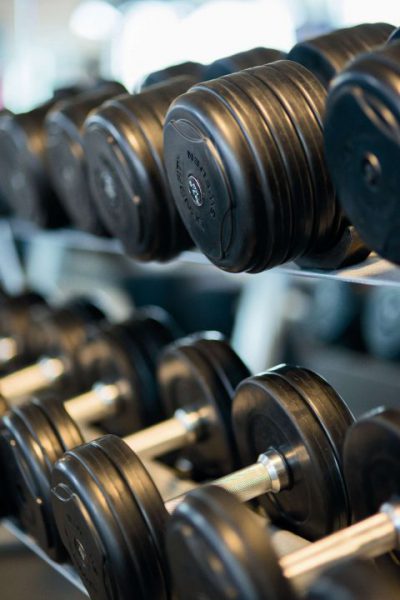
My dad and I did a lot of projects together when I was young, like yard work, DIY, and especially automotive repair. We were lower middle-class and couldn’t afford to send our cars to the shop when they broke down. And they broke down a lot.
I remember when my dad would start handing over the big projects to me: dig a post hole, pick up an engine, loosen a lug nut. It was kind of a badge of honor. I was strong enough to do manly tasks, tasks that my father had formerly done.
What I realized later is that my dad wasn’t just being lazy or taking advantage of me; he was losing his strength. I came to know that dad couldn’t loosen the lug nut any more. He couldn’t pick up that heavy box or dig that hole.
The Importance of Strength
When I was a teenager, and even into my early 20’s I lifted because I wanted to both be strong, and have the appearance of strength. Honestly, it mostly for the appearance.
I stopped lifting because it was inconvenient (life happens, business happens, kids happen) and because it wasn’t necessary; I wasn’t competing in sports and I wasn’t competing for a mate. Why else spend the time in the gym?
Now I know there are a lot of benefits to strength / resistance training beyond being a young hotshot. The older we get, the more we need to stay strong.
Strength training helps you stay independent
I don’t want to go to a nursing home. Like most men, I’d rather “burn out, than fade away”. Being able to pick something heavy off the ground, pull things toward you, lift a box overhead, or push a piece of furniture across the room; these are normal activities of independent life that we risk losing as we age if we don’t keep our strength up. You can’t call your adult children or neighbors every time you need to empty the dishwasher and place a plate in an overhead cabinet, or pick up a full clothes basket off the floor.
Let’s face it; the more you ask for help, the faster they’ll put you in a home. Stay strong, stay independent.
Strength training helps you stay vibrant
I want to live life to the fullest as long as possible. Strength training helps me do that.
- Resistance training integrating the largest number of muscle groups helps raise testosterone levels, albeit briefly, for young and older men alike. T levels affect protein synthesis, increased muscle and bone mass, and…sexiness.
- Resistance training has health benefits beyond what is available through aerobic exercise alone. A combination of aerobic training and strength training helps increase blood flow and reduce arterial stiffness (both indicators of cardiac health).
- Finally, one study linked overall muscle strength to increased cognitive function. Be strong, think strong!
Strength training contributes to skeletal health
We’ve all heard the story of how grandpa fell at home, broke a hip, and is now living in a nursing home, incapacitated. What you may not know is that hip fractures are more deadly for elderly men than for elderly women1.
Studies have shown that strength training increases bone density from 1-3% in the hip, lumbar spine, and neck. That’s fairly significant, given that we are both halting bone loss due to aging and actually building new bone.
Need more reasons?
As a middle-aged guy, these are 3 big reasons why I lift. But if you need more reasons, this handy little infographic from Positive HealthWellness gives you even more reasons to start strength training.
Conclusion
There are lots of reasons to continue – or even begin – strength training into your 50’s: it keeps you independent, it keeps you vibrant, it protects your skeletal health. Bottom line, it allows you to do more of what you enjoy doing longer.
You may think that 50 is too old to get in the gym to start lifting again. Personally, I walked back into the gym when I was 44. My friend Tina is a CrossFit dynamo at 52. My friend Gus starting lifting again around 50, even after suffering a heart attack. This year (2017) he competed in the national CrossFit games as a masters competitor. Then there’s this amazing woman who started training again at 46 and is now a masters competitor at 52.
It’s never too late.
